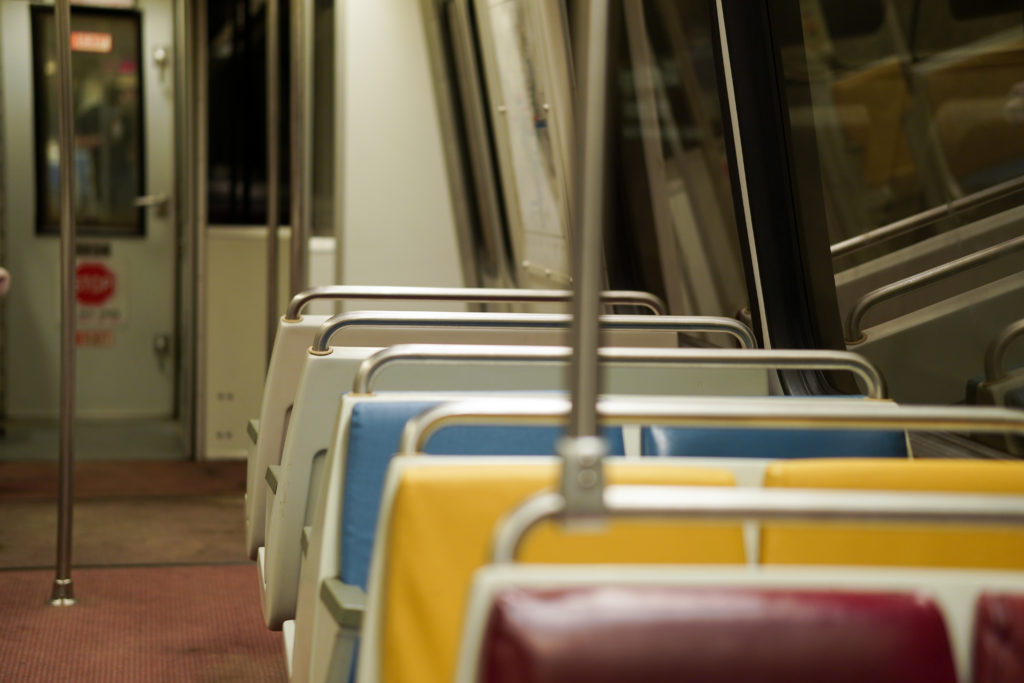The Washington Metropolitan Area Transit Authority is proposing historic service cutbacks for fiscal year 2022 amid a financial crisis and massive budget shortfall during the COVID-19 pandemic.
Under a current agency proposal released Monday, WMATA could eliminate all weekend rail service, shut down 19 stations, terminate nearly 20 of its 41 bus routes, end weekday rail service at 9 p.m. and extend the gap between some train arrivals to 30 minutes on weekdays. The budget cuts also include plans to sever 1,000 more working positions than previously intended, with the total projection now standing at 2,400 workers who will either be laid off or accept $15,000 buyouts if they’re eligible for retirement.
The budget cuts serve as an example of how the pandemic has crippled the public transportation system across the country, where ridership has plummeted under health concerns, stay-at-home orders and in-person business closures.
“In the face of a historic budget shortfall, the Proposed FY2022 Budget preserves barebones service to sustain essential travel and to ensure the network is in place to serve regional recovery,” the proposal states. “Preserving even this limited service requires contributions from all stakeholders.”
Paul Wiedefeld, Metro’s general manager and CEO, said officials decided to cut weekend service, when ridership is lowest, according to DCist. Officials will expand bus service to account for the Metrorail’s closure, DCist reported.
“Any cut is painful,” Wiedefeld said in a call with local reporters. “That’s just the reality of what we’re up against right now.”
DCist reported that the selection of shuttered stations will look similar to those closed at the onset of the pandemic, which included the Smithsonian and Arlington stations. Metro currently operates trains every eight to 15 minutes, and the proposal states officials will maintain 15-minute arrival times at some of the city’s busier stations around Metro’s “core.”
Officials also plan to reinstate “turnbacks” in which trains would turn around and return to the center of the District instead of traveling further out into suburban areas, which would increase wait times for those in D.C.-area suburbs, according to DCist. Metro’s proposal states the agency will still open the second phase of Silver Line construction in July 2021 despite its other budget cuts.
DCist reported that Metro’s service reductions are “the grimmest in its 50-year history,” as officials hope to meet a $500 million deficit that has plagued the agency during the COVID-19 pandemic. After first projecting $680 million in fare revenue during FY21 before the pandemic, the report states Metro officials now plan to collect only $117 million this fiscal year with an increase to $172 million next year.
Metro officials project they will recover up to 20 percent of pre-pandemic ridership levels by the end FY21, and they expect to reach 34 percent during FY22, according to WMATA’s proposal presentation.
Anticipating upcoming budget cuts earlier this semester, students said service scalebacks would complicate their travel schedules if trains were to arrive at stations less frequently than before the pandemic struck.
Metro first started to dial down service in late March when the COVID-19 outbreak swept across the region as officials slowed train circulations and shuttered nearly 20 stations. After resuming pre-pandemic service levels once cases stalled in the region in August, officials reversed reopenings last month with plans to return to fare collection on Metrobuses and “less frequent” rail service in 2021.
WMATA has leaned on CARES Act funding to offset the financial fallout heralded by its revenue dropoff, but that funding expired at the end of July and is expected to run out in March. Congress has yet to pass another relief package, but Wiedefeld said the agency could alleviate the potential service overhaul if lawmakers can reach an agreement before April or May.
A group of bipartisan senators presented a $908 billion stimulus proposal Tuesday in an effort to rush a relief package through Congress and into the hands of Americans and local governments after months of disagreement, raising hopes that federal funding could soon be on the way.
Mayor Muriel Bowser issued a statement following Metro’s budget announcement, calling on federal lawmakers to set aside partisan differences and agree on a relief bill to “save” the Metro.
“WMATA’s deeply troubling proposal is another reminder of the critical need for federal stimulus to revive our economy and to preserve our way of life,” she said in a tweet. “Not too long ago with our federal government, we put Metro on the right track to meet the needs of residents and visitors alike. Regardless of party or ideology, we must once again come together to save Metro.”
Paul Smedberg, the chair of Metro’s board, said although officials had to plan without the expectation that the agency would receive federal funding, he remains optimistic that legislators will recognize the need to save public transportation, according to The Washington Post.
“They really want to see transit survive,” Smedberg told the Post. “So they’re really concerned about this, obviously, and want to do everything that they can to support us given all the investment over the years, and decades, really, that this region and its elected leaders have put into this.”
WMATA officials will present the FY22 budget proposals to Metro’s board Friday, and the board will listen to public hearings and comments until February before their final vote on the budget in March, the Post reported.
If approved, the budget cuts will go into effect in July 2021 when FY22 begins, according to WMATA’s proposal.







